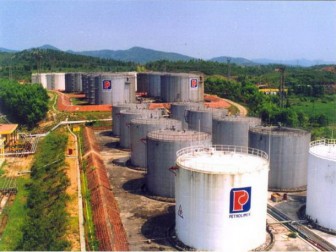 * Israel hits Syrian artillery that fired on Golan
* Israel hits Syrian artillery that fired on Golan
* China Oct implied oil demand up 6.5 pct on year
* North Sea Buzzard field output briefly cut
* EIA, API inventory data delayed by one day (Updates prices in paragraph 7, adds details on U.S. inventory data in paragraph 12)
By Robert Gibbons and David Sheppard
NEW YORK, Nov 12 (Reuters) – Oil slipped in choppy trading on Monday, as markets balanced concerns about U.S. fiscal problems against geopolitical tensions and strong oil demand in China.
Prices seesawed throughout the day before heading lower in the afternoon as worries about looming U.S. tax increases and spending cuts – the so-called fiscal cliff – weighed on markets.
Early support came from data suggesting that implied oil demand in China, the world’s second-largest oil consumer, grew 6.5 percent in October from a year earlier, bolstered by inventory building and new production capacity.
In addition, Israel’s army fired tank shells into Syria in response to a Syrian mortar shell that struck the Golan Heights, stirring concerns Israel could become drawn into the conflict.
Tensions in the Middle East, including the West’s standoff with Iran over the OPEC nation’s nuclear program, have lifted oil throughout the year, while worries about the impact of the struggling global economy on fuel demand have pushed prices down.
“The battle continues between the negativity from the slowing of the global economy compared to what global stimulus programs might do to the economy going forward, while geopolitics have continued to remain an issue,” said Dominick Chirichella of New York’s Energy Management Institute.
Brent December crude settled 33 cents lower at $109.07 a barrel, below the 100-day moving average of $109.19. U.S. December crude slipped 50 cents to settle at $85.57 a barrel.
Oil received a brief bounce from news that production at Nexen Inc’s Buzzard oilfield was temporarily shut off because of a power interruption at the weekend, before the restoration of output on Monday.
Delays in the field’s restart following two months of maintenance have disrupted shipments of Forties, the most important of the North Sea crudes underpinning the Brent benchmark, and helped widen Brent’s premium to U.S. crude in recent weeks.
Jitters about delivery problems and a tight supply picture in New York Harbor underpinned U.S. December RBOB gasoline futures in early U.S. trade, before they followed the rest of the oil complex down slightly in late activity.
Hurricane Sandy’s strike on the U.S. Northeast hit New York Harbor, delivery point for the gasoline and heating oil contracts traded on the New York Mercantile Exchange. There have been fears that deliveries on the November contracts will be hampered by damage to the region’s infrastructure.
Weekly U.S. oil inventory data from the American Petroleum Institute and the U.S. Energy Information Administration, normally released on Tuesday and Wednesday, respectively, is delayed by a day this week due to the Veterans Day holiday.
(Reporting by Robert Gibbons and David Sheppard in New York; additional reporting by Alice Baghdjian in London and Manash Goswami in Singapore; Editing by M.D. Golan and Dale Hudson)
Source: Reuters


























